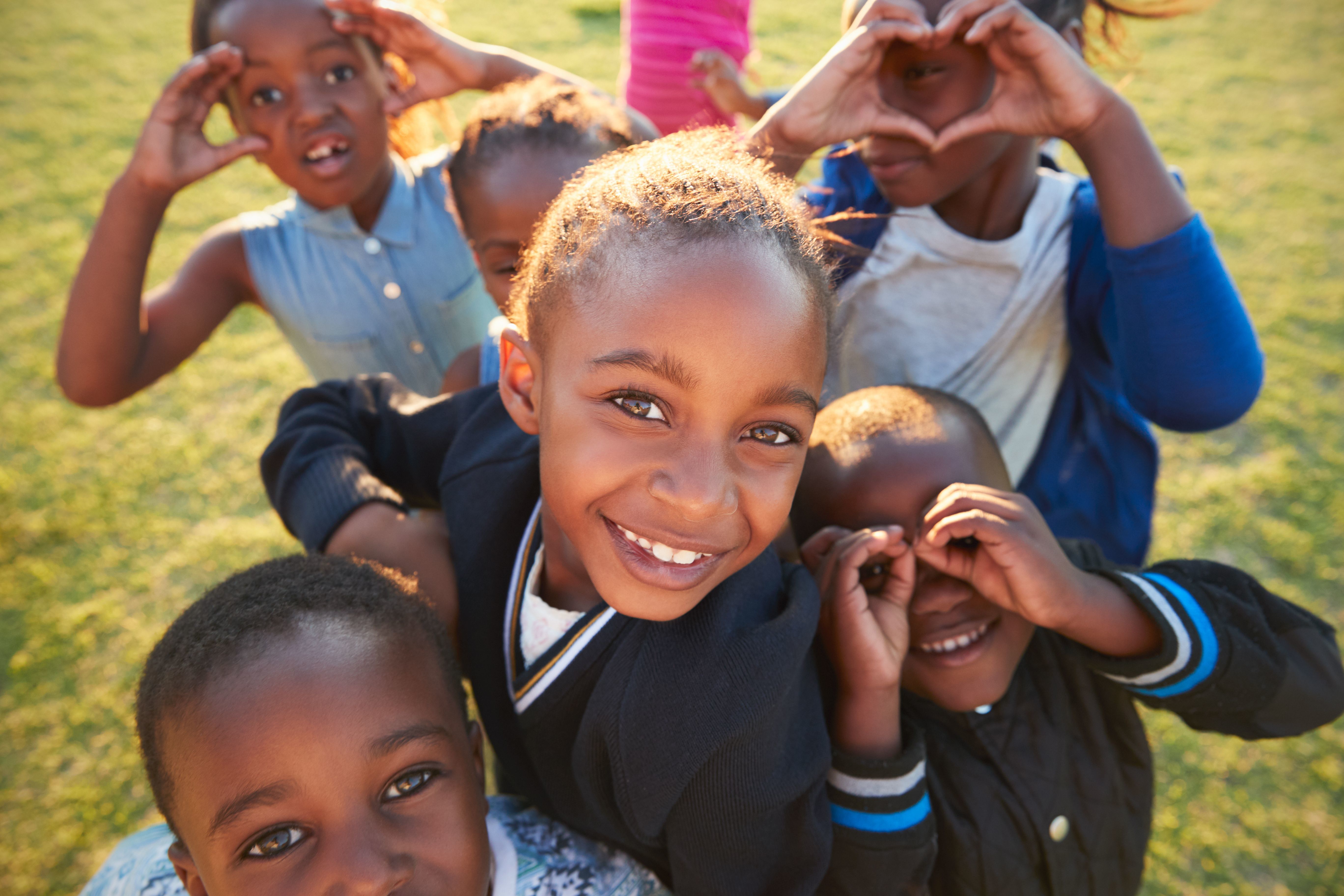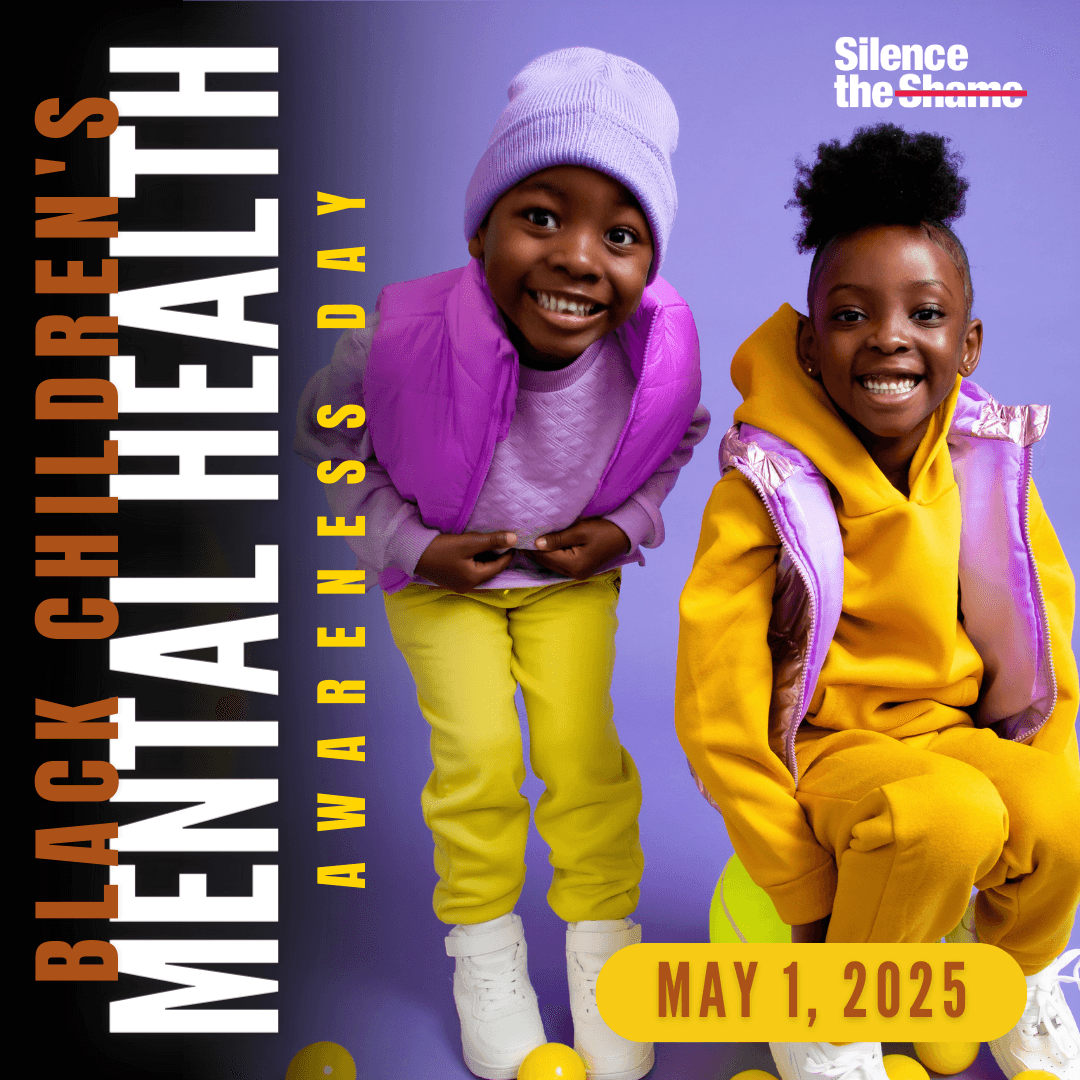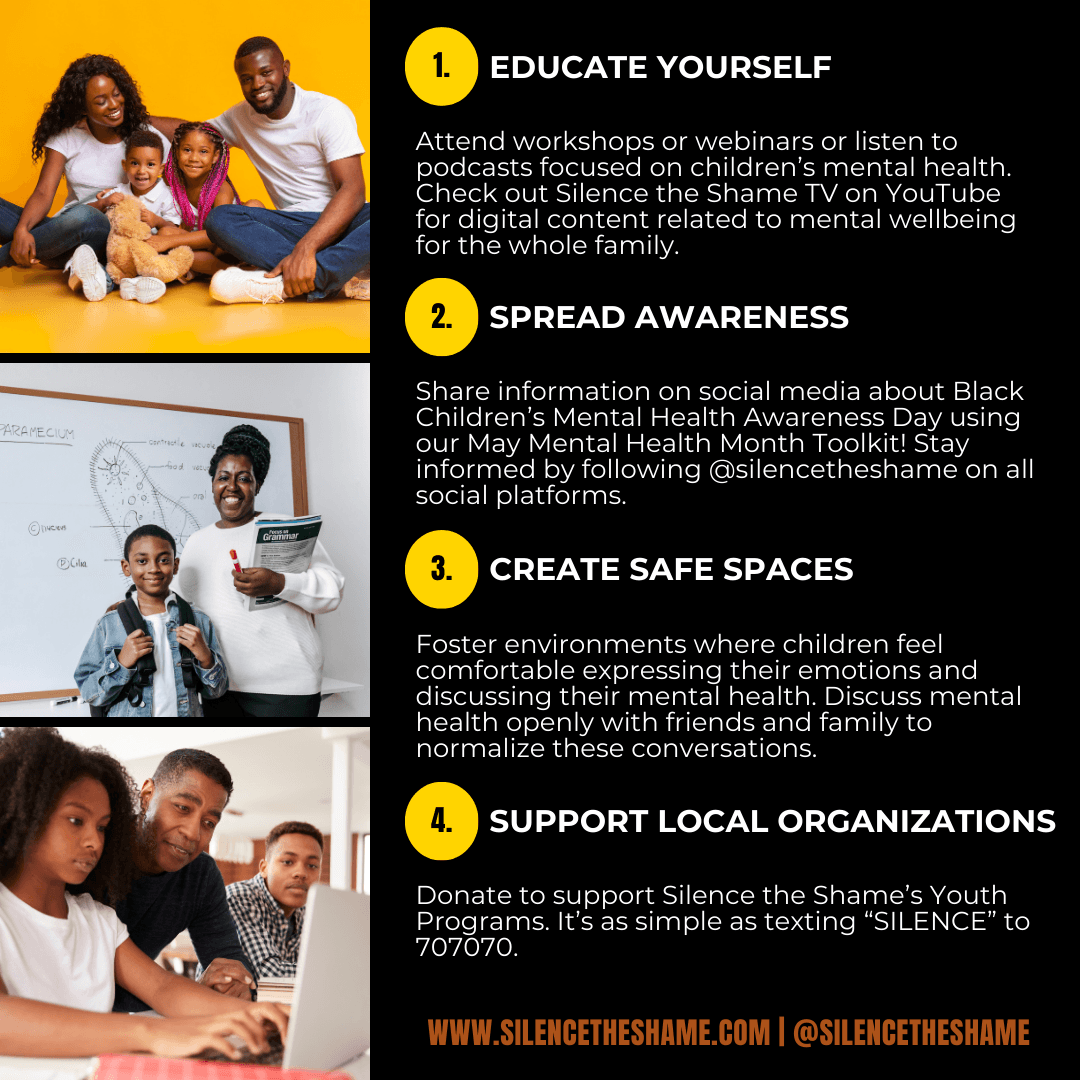
Black Children's Mental Health Awareness Day
In response to the growing mental health crisis among Black youth, Silence the Shame (STS) proposes to designate May 1st as Black Children's Mental Health Awareness Day in Georgia. This initiative aims to shine a spotlight on the unique challenges and systemic inequities affecting the mental health of Black children and adolescents aged 4-18. The need for such a focus is underscored by the establishment of the Emergency Taskforce on Black Youth Suicide and Mental Health by the Congressional Black Caucus on April 30, 2019, which highlighted the urgent need to address the alarming rates of suicide among Black youth.
The Impact of the Pandemic and Other Challenges
The COVID-19 pandemic has exacerbated existing mental health disparities, particularly among Black children. The isolation, disruption of routines, and economic hardships have disproportionately impacted Black communities, intensifying stress, anxiety, and depression among youth. Moreover, Black children often face systemic barriers in accessing mental health services, including a lack of culturally competent care and stigma associated with seeking help.
The Strength of Black Children in Navigating Mental Health Challenges
Despite these challenges, Black children demonstrate remarkable resilience and strength. Their ability to navigate complex social and emotional landscapes is a testament to their potential when adequately supported. Recognizing and celebrating this resilience is crucial in changing the narrative around Black mental health from one of deficit to one of strength and potential.
Designating May 1st as Black Children's Mental Health Awareness Day in Georgia is more than a symbolic act. It is a critical step towards acknowledging the unique challenges faced by Black youth and committing to their mental and emotional well-being. By increasing awareness, offering targeted support, and advocating for research and funding, we can help ensure that Black children grow into their full potential, supported by a society that understands and values their health and well-being. Let us come together to support this vital cause, recognizing the strength and resilience of Black youth and the critical role of mental health in their lives.
Objectives of Black Children's Mental Health Awareness Day
Increase Awareness: Educate the public about the specific risk factors and challenges that Black youth face regarding mental health. This awareness is vital in dismantling the stigma that often surrounds mental illness and suicide in Black communities.
Offer Prevention and Intervention Strategies: Provide resources and strategies to support Black children and families in managing mental health proactively. This includes promoting access to culturally competent mental health professionals and effective support systems within schools and communities.
Advocate for Funding and Research: Support the need for increased funding and advocacy to ensure that Black scientists, researchers, and practitioners are represented and can contribute to culturally informed research and solutions. This is crucial for developing effective interventions and policies that address the specific needs of Black communities.
Supporters
Mental Health America
Stepping Through LLC
Trinity Social Services
Open Arms Inc
Background
Between 1991 and 2017, suicide attempts among black adolescents increased by 73%, while attempts among white youth decreased, according to an analysis of more than 198,000 high school students nationwide. ii Other studies have shown an elevated risk of suicide among African American boys ages 5 to 11. As a result of these findings, psychologists boost their efforts to address suicide by diagnosing and treating its precursors, including trauma, depression, and anxiety, while raising awareness of the crisis. Black researchers have attempted to study these findings further but denied those opportunities. Black people face increased rates of risk factors, including experiences of racism, higher rates of unemployment and financial and food insecurity, disparities in other aspects of health, and limited access to care, all of which result in an increased burden of mental illness in black communities. As of 2018, suicide became the second leading cause of death in Black children aged 10-14 and the third leading cause of death in Black adolescents aged 15-19. By combining data from 2001 to 2015, researchers examined suicides among children ages 12 and younger and found that Black children were more likely to die by suicide than White peers. In addition, African American teens are more likely to use lethal means in suicide attempts (e.g., suffocating, hanging, and using firearms). Between 2001 and 2017, rates of suicide increased by 60% among African American teens males and 182% among African American females.vi Mental Health America’s online screening data indicates that the most significant increase in the proportion of youth experiencing suicidal ideation between 2019 and 2020 was for Black or African American screeners and Hispanic or Latinx screeners. According to the Center for Disease Control and Prevention (CDC), Adverse Childhood Experiences (ACEs) are potentially traumatic events in childhood and the conditions in the child’s environment that can undermine their sense of safety and stability. Research in ACEs has increased in recent years, with hundreds of studies finding a strong and consistent relationship between childhood adversity and numerous public health outcomes. Children from minority backgrounds—whether based on race, socioeconomic standing, or sexual orientation—were at distinctly higher risk of ACEs and their devastating life-long effects than middle-class white children. For example, in the United States, 61% of black children and 51% of Hispanic children have experienced at least one ACE, compared to 40% of white children. In most areas, the population most at risk was black children.



